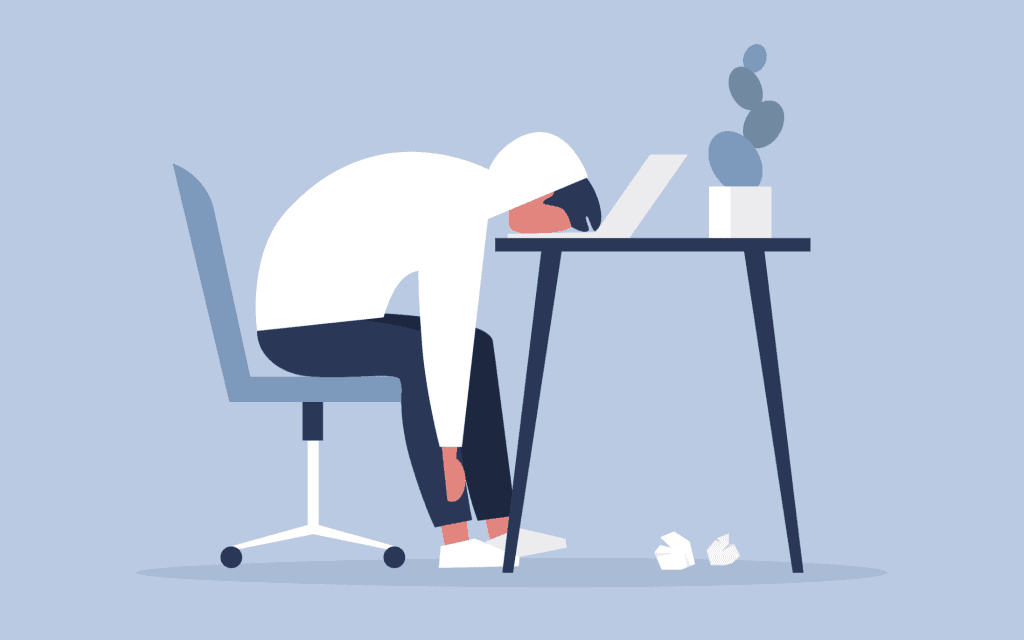
Some employers may be concerned with increasing productivity of their workforce in a time of global instability. Yet what they should really be concerned about in this unprecedented situation is one that poses a potential longer-term risk: the risk of employees burning out. In Singapore, a psychologist from the Institute of Mental Health commented that some of their clients find themselves working more than 50 hours a week, exceeding the 48 hour cap of the Ministry of Manpower’s Employment Act.
Many employees who have always been desk bound and not used to working remotely, struggle with trying to preserve the already blurred lines between work and personal life. They may unintentionally feel like they have to work all the time round the clock in order to show their loyalty and dedication to work. Those who are parents will also have to double up as a homebased learning companion for their children.
The mental stress caused by these expectations of ourselves suddenly peaks and can be detrimental to our mental health. Research from the Harvard Business Review has shown that workers often unintentionally make it hard for the supervisors, colleagues and employees to maintain work life boundaries. One way they do so is by sending more emails outside of office hours. When you are on the receiving end of these late night/early morning emails you may feel compelled to respond right away even when such emails are not urgent.
As not all businesses will allow workers to return to the office soon, how can employees compartmentalize their work and non-work life given the situation that so many of us are in today? What are the ways that we can “leave at work on the door” if we are no longer commuting to work? Here are three methods that may help you find your way out of a WFH burn out situation.
Maintain physical and social boundaries.
For some who have extra rooms in the house, this means preparing one room to be your work from home office which you deck out with all your favorite things from your actual office. This way you can open a door and “hop into office” and create that physical boundary between “the office” and the “rest of the house”. This also allows you to perform a mental trigger action such as opening an office door is equivalent to getting ready for work. Another useful mental trigger is to prepare yourself for work every day as per your usual routine. Put on your work clothes, put on makeup in order to read yourself for the start of the day. If you commute to work every morning, use that same amount of time to walk around your apartment or in a nearby park before sitting down in front of the computer. This helps prepare you mentally for the day and gives you some “me” time before getting in the thick with conference calls.
Stick with time bands.
This means scheduling a set time for conference calls with workers, managers and clients. Save some time in the day to get down to doing actual work so that your work doesn’t bleed into the night and end up working long hours. Ensuring that you have a set time for lunch and communicating this to the rest of the team also helps to set expectations with workmates and provide yourself with some well-deserved timeout.
Some employees may feel that they have to overcompensate for their performance by working harder than what they would normally do in the office. As a manager, team leader, mentor you can help them regain their self-confidence and relieve stress from their own expectations. Help set into place rules that no one should be working beyond a certain hour of the night.
Focus on the most important work.
While working from home employees may feel compelled to project the appearance of productivity which may eventually lead them to doing unimportant busywork. This may be counterproductive in the long run and increase stress and workload to them.
Understanding what is an important task versus busywork will help you address the urgent important work from the important less urgent work. Use time management techniques such as Pomodoro Technique, The Eisenhower Matrix, or Brian Tracy’s Eat That Frog & The ABCDE Method
Workers get burnt out and it really is no joke when you find a star employee suddenly being disgruntled and creating negative vibes with others. They have difficulty understanding why they are raw around the edges and are unable to identify any impatient and ungracious behavior, or others simply retreat into a depressed state. Take care of yourself and your employees by following these three tips to avoid burnout in the long run.








